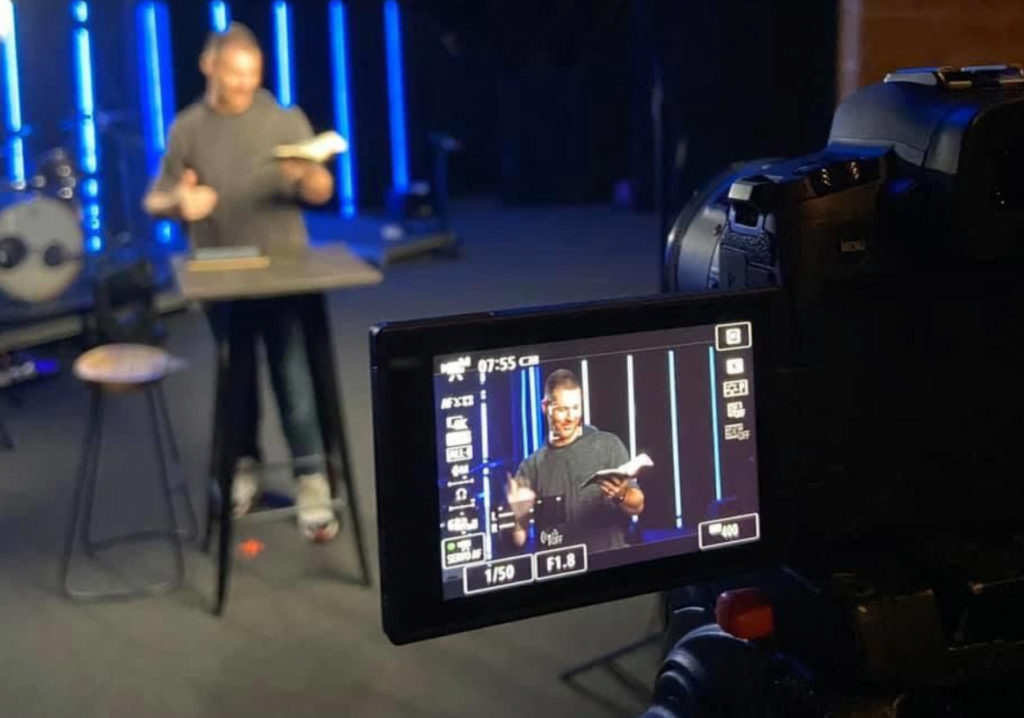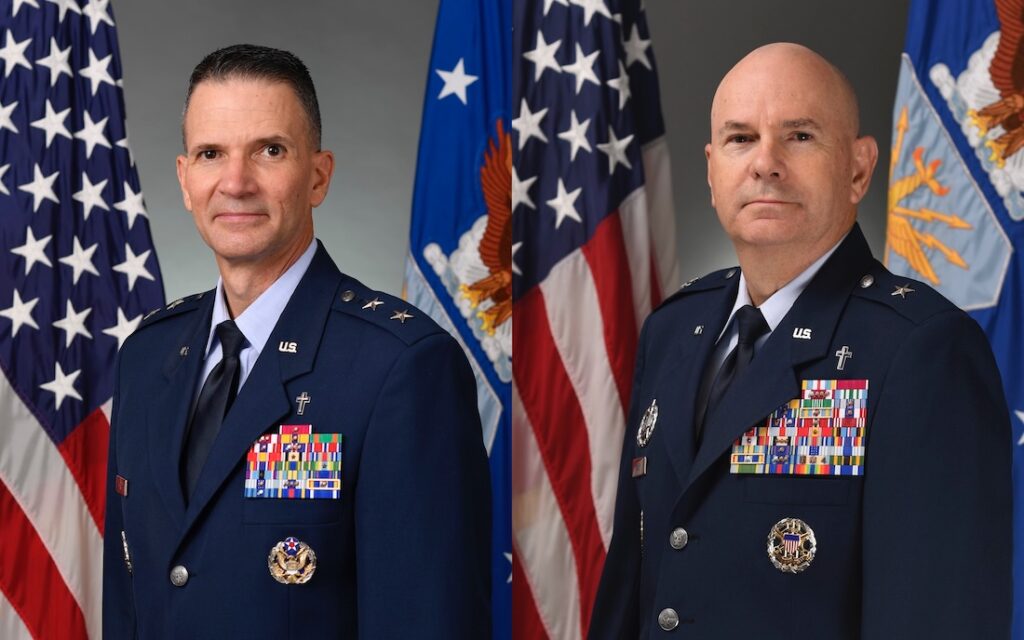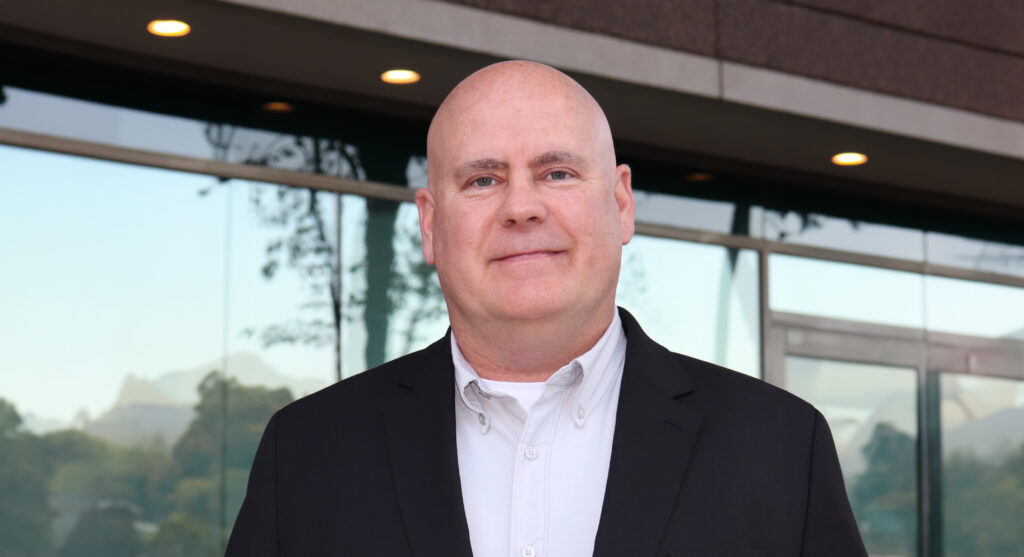By Tobin Perry
ALPHARETTA, Ga.—With many Baptist campgrounds throughout the United States announcing they won’t host summer camps or will do so only on a limited basis due to the COVID-19 pandemic, churches are looking for other high-impact options to reach and disciple students.
Shane Pruitt, the North American Mission Board’s executive director of next gen evangelism, says the complete loss of summer camps will hurt local church efforts to reach youth with the gospel.
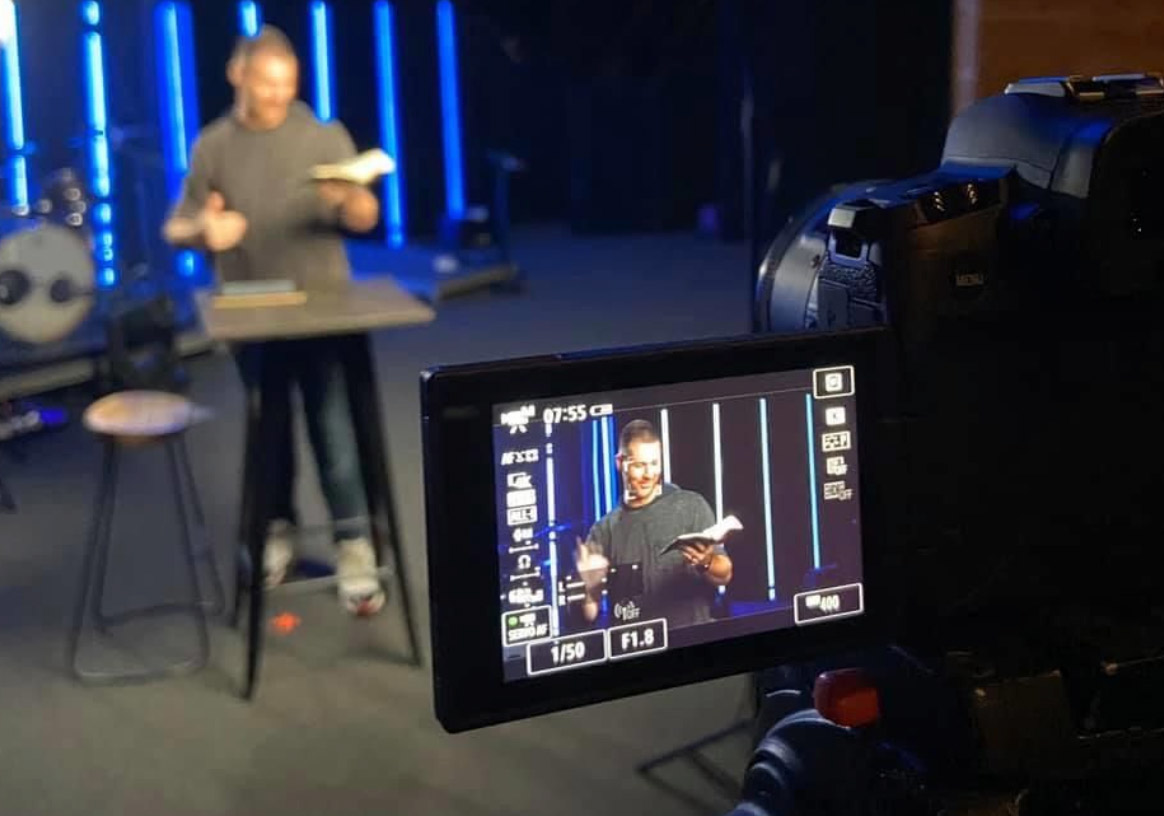
Shane Pruitt, the North American Mission Board’s executive director of next gen evangelism, records a sermon for a digital youth camp that will be used this summer. Pruitt typically teaches at youth camps throughout the Southern Baptist Convention during the summer. With the COVID-19 pandemic, many of those camps will be led digitally. (Photo provided by Shane Pruitt.)
“In the summer, those VBS and youth camps are such important avenues of ministry evangelistically,” Pruitt said. “So many kids come to know Jesus at VBS, and so many teenagers and students come to know Jesus through youth camp. You can probably talk to 10 Christians and ask them, ‘How did you come to know Jesus?’ I guarantee you a large segment of them are going to say we came to Christ at VBS or at youth camp.”
Many campers, Pruitt notes, also make lifelong commitments to ministry and missions at summer camps. To help churches fill in the gap from the loss of these camps, Pruitt says many state Baptist conventions and other organizations will offer alternatives for churches. With every state at a different phase in the re-opening process, these alternatives will vary depending upon the state.
The Falls Creek Baptist Conference Center, operated by the Baptist General Convention of Oklahoma, will offer two options for Oklahoma Baptists. One will be a “Falls Creek Night” at local churches throughout the state. These events will include extended worship service with preaching, music, a response time, a missions mobilization time and potentially a few other camp elements.
The Falls Creek team has also developed a digital camp for churches to use with their own students. The digital camp includes all the components of a Falls Creek camp. Although some of the details are still in the planning stages, Todd Sanders, the program director at Falls Creek, says the digital version will include a quick-start guide, worship music, preaching, video breakouts, recreation options, mission mobilization ideas, Bible study material and a quiet time guide for students.
“I think this will be a summer in which we see the Lord move in a way that only he can do,” Sanders said. “We won’t rely on our traditions that we’ve grown to love, grown accustomed to, and appreciate. But I think God can do something in a very different way. I still see the opportunity.”
Sanders says, thanks to Cooperative Program giving, the digital camp option will be available in June as a free resource for Oklahoma Baptist churches.
Sanders says 50,000 to 55,000 students plus adults participate in summer camps over eight weeks during a typical summer at Falls Creek. More than 2,000 students make professions of faith during most summers. Between 400 to 1,000 students are called to ministry and missions annually during their time at the camp.
Ryan Fontenot, founder of R.A.G.E Ministries and a former Texas Southern Baptist pastor, had started creating digital resources to help churches before the COVID-19 pandemic hit. Once it became clear that summer youth camps would likely not be possible for many churches, Fontenot quickly ramped up production of a digital youth camp option built around the theme of unity and Jesus’ prayer in John 17.
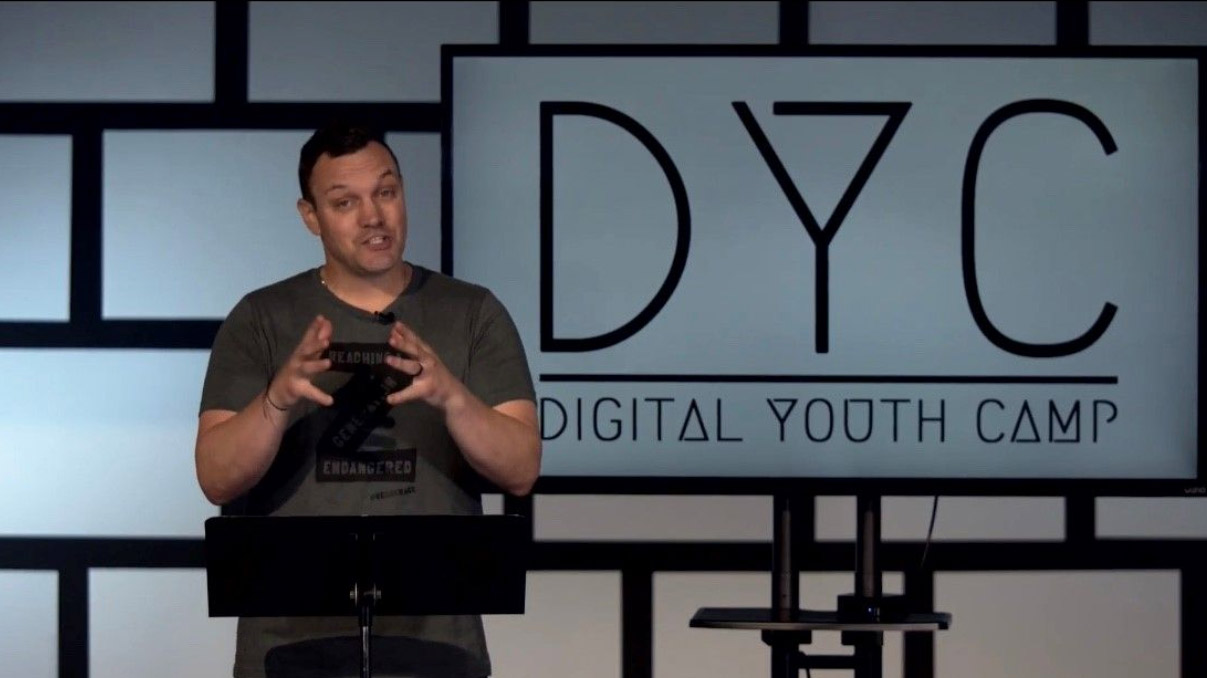
Ryan Fontenot, the founder of R.A.G.E. Ministries, preaches for the Digital Youth Camp his ministry has produced. Fontenot says the ministry began planning digital options for churches last fall, long before the COVID-19 pandemic hit. He believes the digital camps will provide churches the unique opportunity to do missions in their own community during the camp. (Photo provided by Ryan Fontenot.)
Fontenot’s program includes eight full worship services with preaching and music. The material also includes small group discussion starters and recreation and missions ideas. More information on the curriculum is available at digitalyouthcamp.com.
Like preparing to participate in an off-campus summer camp, Fontenot recommends churches spend significant time in prayer and get parents and volunteers involved in the digital camp before the event. He also encourages youth leaders to make significant efforts to involve students in missions during their camp experience.
“A lot of times you go to camp and you say, ‘When we get home, we’re going to do [missions],’” Fontenot said. “With digital youth camp, you are home. I think it’s really going to allow youth groups to put feet to the ground as they’re walking through it, which is exciting.”
Pruitt notes that the digital options available to churches this summer will allow for flexibility in how churches use them. Some may decide to do a typical, week-long summer camp. Others may use a session a week throughout the summer in place of regular youth group programming. Some youth groups may even choose to use it later in the year for a student event.
Pruitt doesn’t believe the digital options should replace in-person camps, but he believes there are advantages to them. Besides the ability to participate in local missions, engaging people with the gospel in the church’s own community, it gives churches the flexibility to adjust camps to their own needs.
“Even when we’re able to physically gather again, we’ll have to always think of some aspect of digital ministry,” Pruitt said. “Whether it’s streaming services or providing digital options for people and churches, I think digital ministry is here to stay.”
Tobin Perry is a writer in Evansville, Indiana.
Published May 29, 2020
